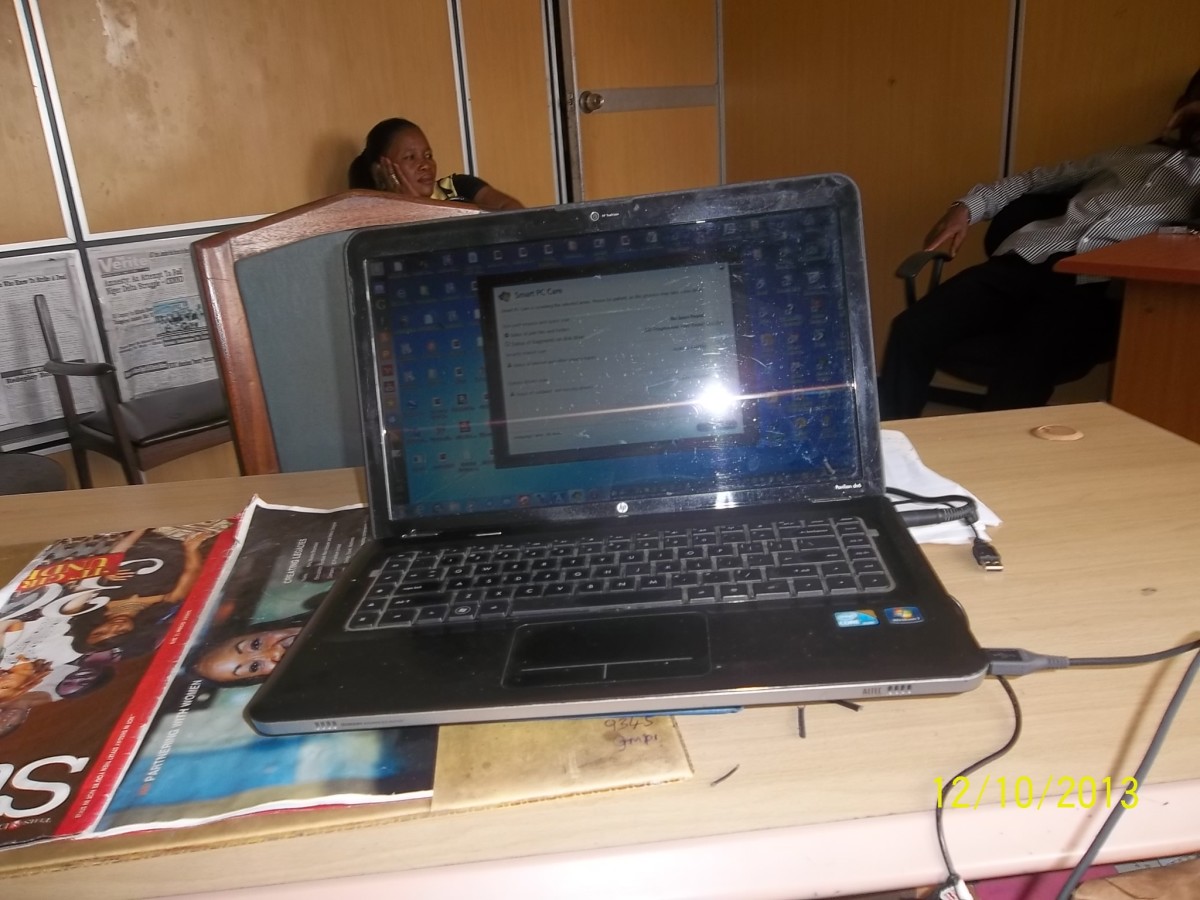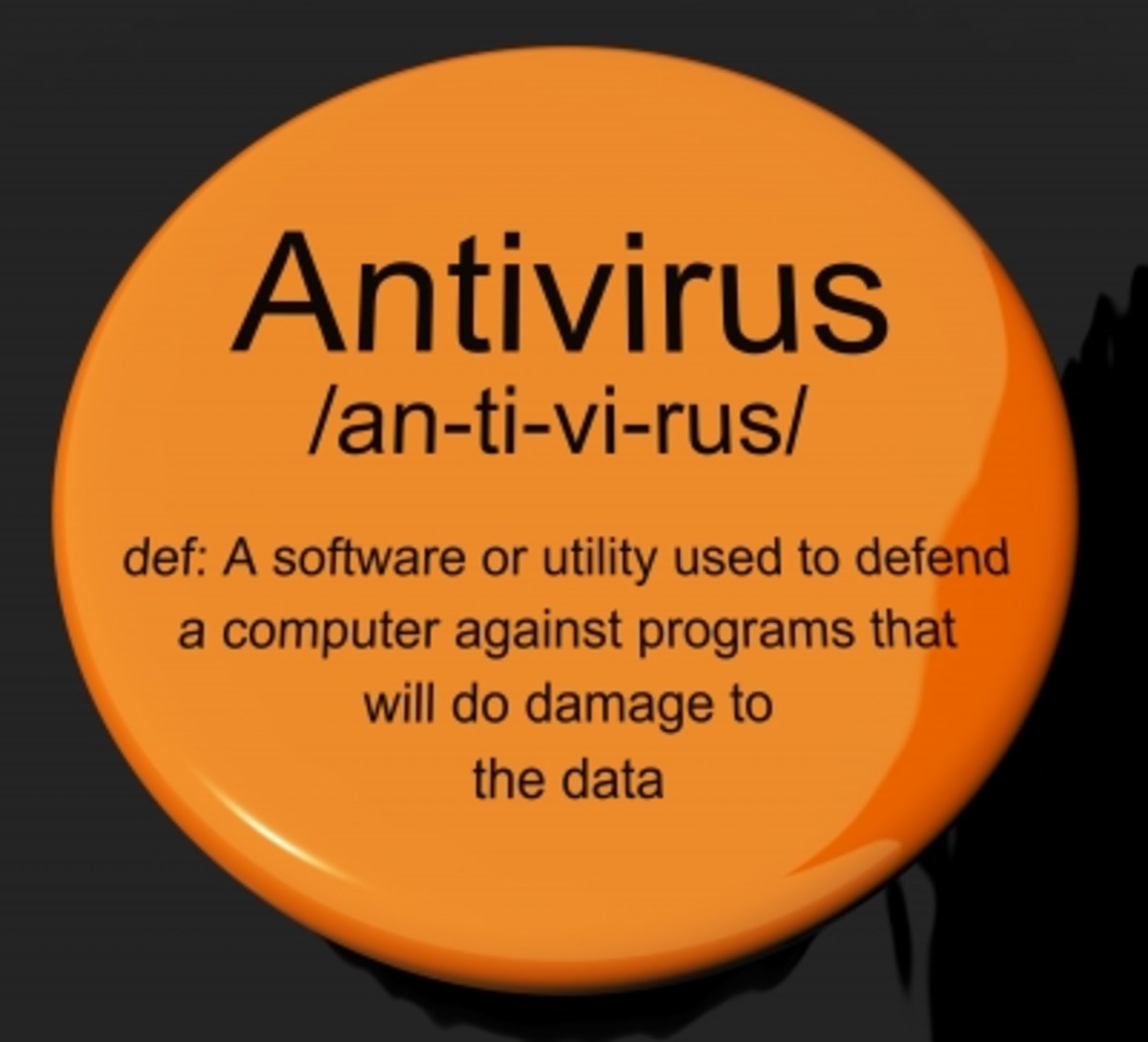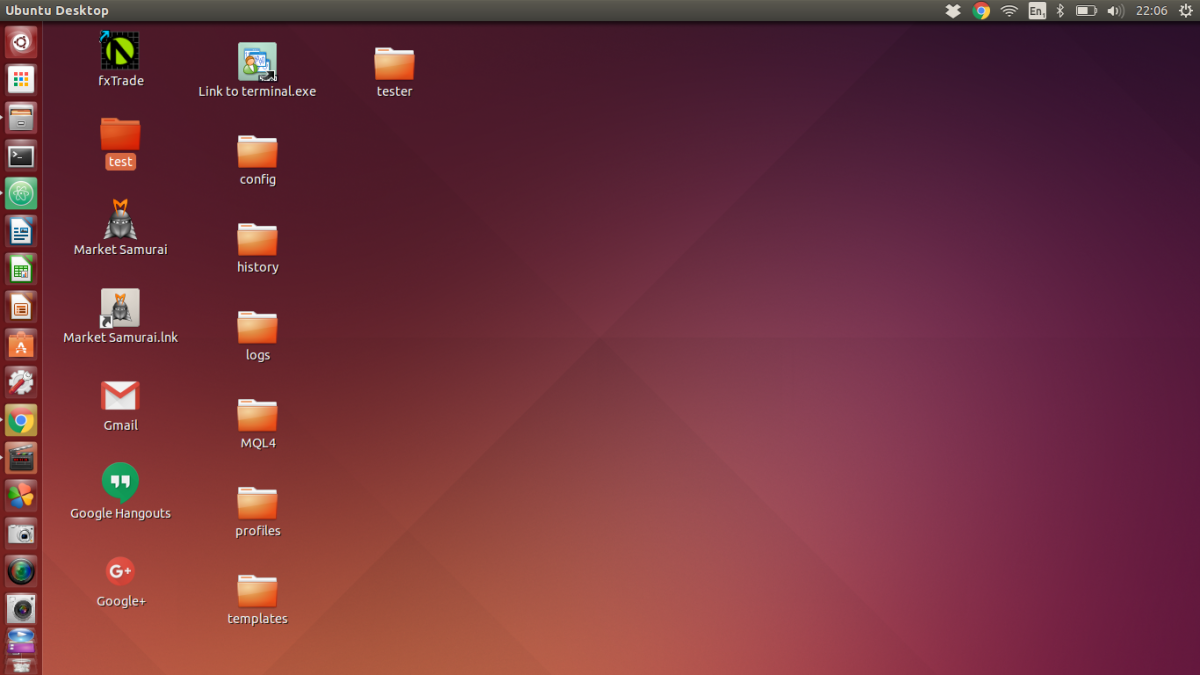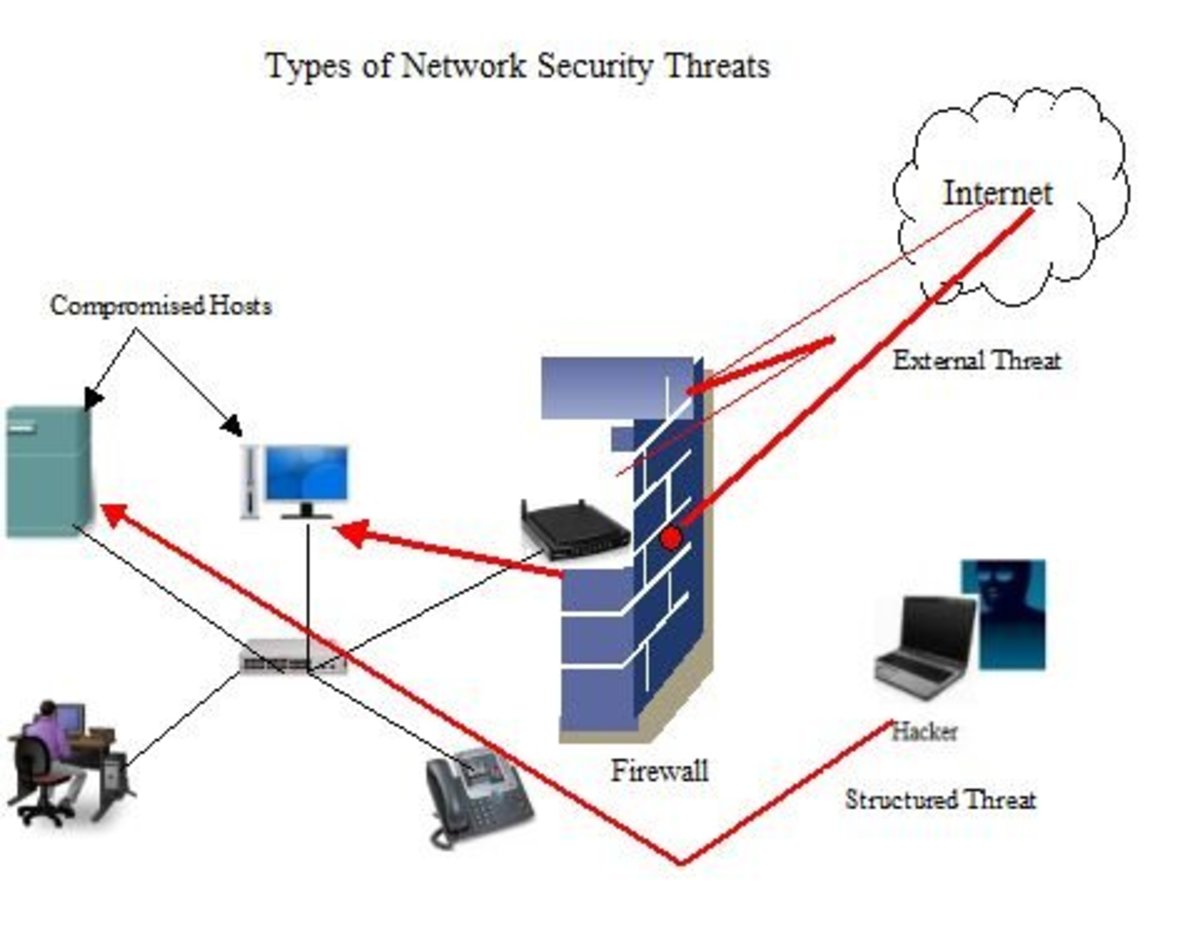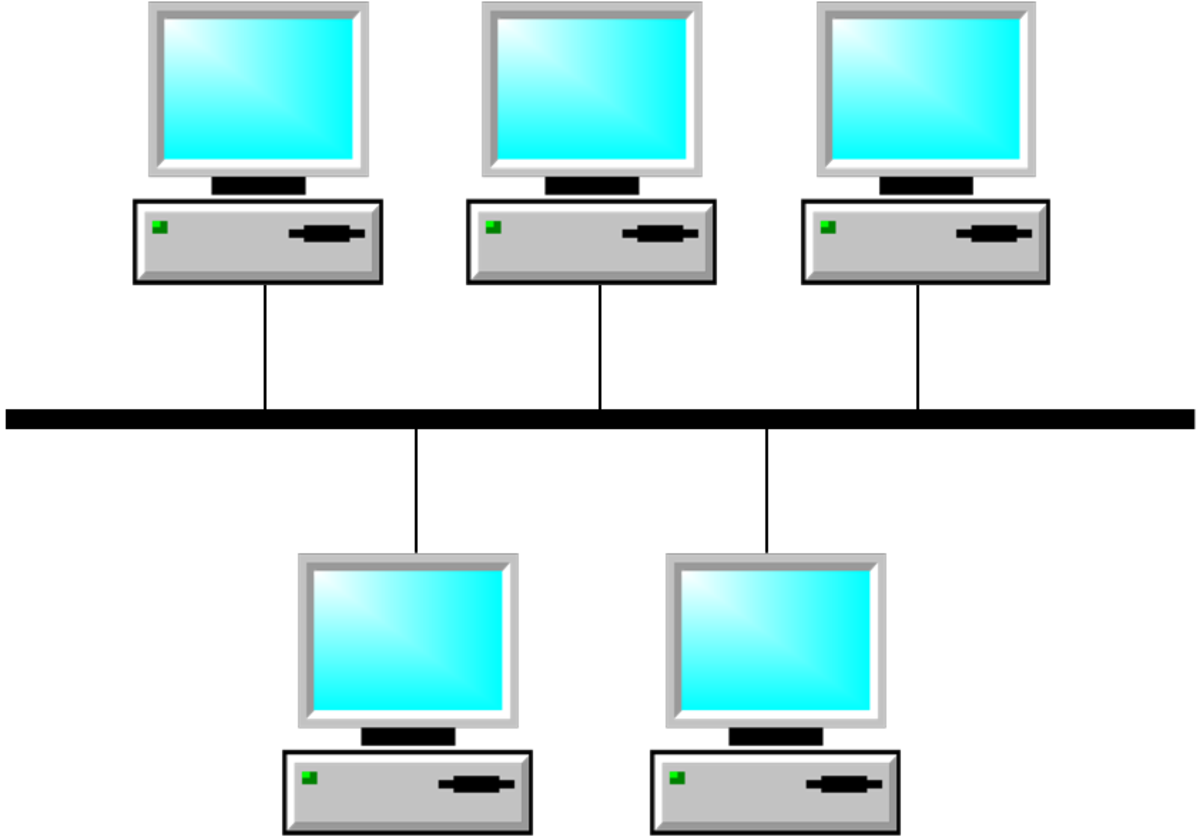Free Total PC Security Protection
3 Components Making Up the Free PC Security
I've never had a chance to read anything called 'Windows PC security for dummies', therefore my thoughts on the subject come solely from my own experience in the field of PC protection.
The total shield as such does not exist; any claims to provide 100% guaranteed protection deserve a good deal of scepticism. Partially this is due to the nature of Windows operating system, partially it is accounted for the ever changing diversity of online threats any Internet-connected PC is exposed to.
Let's get it straight - no antivirus is capable of detecting 100% virii. It doesn't mean there are no excellent antivirus software on the market - there are, and a couple of free solutions are worth installing if you're on a budget. While limited in functions compared to full paid versions, they all provide resident protection, real-time scanning, automatic updates, instant removal - the features common for all modern anti virus applications.
By 'Total PC Protection' I mean the consolidated install of Antivirus, Antispyware and Firewall. When properly configured, even free versions can build up a very secure operating system.
So to start tuning up the PC security shield, you should get and install:
1. Antivirus
2. Antispyware
3. Firewall
Below I'm describing the software which I personally tested on a number of computers under different usage patterns, and found them to be reliable, simple, and of course absolutely free. Moreover, most respected communities recommend them as well.
Now please don't assume that 'free' is deteriorated or worse than 'paid'. Free versions of antivirus and antispyware usually have licensing limitations (for personal, non-commercial use only) and are bundled with less functions (like network scan). However, they are just OK for single home desktops.
I admit that every recommendation in competitive field of PC security is arguable. I'm not here to insist on my point of view. Advanced users can always make an experiment and conduct substantial research if needed. But I believe that regular home users are better off with the tried and tested set of tools known as 'set and forget' configuration.
The less work is required on part of the user, the friendlier is the software. I guess nobody likes spending time playing with safety configuration and setting presets. With free antivirus and antispyware, this is usually the default installation routine. Just make several clicks and continue with the ongoing tasks.
Some people believe that by purchasing a costly server security software they get a tighter protection from Internet threats. This is rather a myth. Server-based software is designed to work under higher load, with more files, to monitor the state of security in corporate networks, etc. Such software comes with robust admin-panels and control centers that you'll die while configuring. I doubt most home PC users will get much benefit from such costly solutions.
Demystifying PC Security Software
After a couple of days spent on Yahoo! answers I decided to make an addition to this Hub as I see most common questions regarding PC security popping up every hour. Often they are absolutely identical. Just some examples:
- What is the best antivirus?
- What is the best FREE antivirus?
- What is the best FREE antispyware?
- Is Norton any good?
- My PC is screwed up with spyware. What do I do?
- My desktop is full of ads I can't close. Why?
- Windows tells me that I need to download a cure for some spyware. Should I?
Looks like thousands people are asking same questions day by day. I feel like screaming out loud "PC security is not rocket science!"
Each question with the word "best" in it is unanswerable. Really, can you name a best whisky or tequila? I guess Irish whisky makers would never call any non-irish brand ;) So "best" is something of a broad meaning, vague notion, nothing concrete, actually.
This is tight up to antivirus and anti-spyware tools. Let's take a guessing that "best" antivirus is the one that detects and removes all malware that happens to approach a single computer. Can we call the antivirus as "best of the best"? Nope. Because we don't know what kind of acitivity takes place on that PC. Probably there's just one user looking through NY Times ads in the evening. No other websites visited. No P2P apps installed.
That's why in real life the performance of any antivirus program is questioned with its usage conditions. The more unsafe websites visited, the more threats the PC is prone to. Sooner or later its security may be compromised - it's a question of time. And once computer's infected, can we blame the antivirus for that? Honestly, not.
Because there's a huge amount of work done on the side of AV's manufacturer. There are secuity labs testing files that are sent by AV users. There are IT pros analyzing current news and reports on virus activity. There are coders making updates to include signatures of new malware. There are programmers optimizing algorithms of AV scanning engines. So on and so forth. We just never think of what happens on the other side of Internet channel once there pops up a ballon near system clock saying "a new update has been successfully installed".
Probably I'm a bit rude here, but to my mind the best antivirus is to be found in user's skull. What we do with the PC in the long run determnines the risk of it getting hacked or infected. Most sophisticated security software will fail if the user is absolutely determined to get its computer infected no matter what.
No antivirus can ever be relied upon to give 100% protection. None of them do, free or paid. Most only detect about 90 to 95% of all known viruses. When a brand new malicious virus is released onto the Web, no signature-based antivirus program will detect it for several hours up to several weeks. Some will never detect a particular virus. And over 1000 new variants of viruses and other malware are created by the "black hat coders" each and every day.
You should consider a desktop antivirus program to be your "last line of defense". Safe internet surfing and downloading practices (no warez, no P2P) along with maintaining your Windows and all your installed software with all critical updates and security patches should be your frontline defense.
Another notion which many people cannot differentiate are the concepts of antivirus and antispyware. In short, both are needed because the threats they guard the PC against are diverse by nature. Having only antivirus installed is like having a door half-closed.
Spyware is a software that secretly monitors your behaviour. Spyware programs can collect various types of personal information, such as Internet surfing habit, websites visited, but can also interfere with user control of the computer in other ways, such as installing additional software, redirecting Web browser requests, accessing websites blindly that will download more harmful viruses, or diverting advertising revenue to a third party. Spyware can even change PC settings, resulting in slow connection speeds, different home pages, and loss of Internet connection.
To facilitate the task of evaluating the risk of spyware infection, I'm listing some most common signs which indicate that infection is already inside. So if you answer "yes" to any single question below, there's about 99% guarantee that your computer or laptop has provided shelter to very evil guests.
- Do you happen to see pop-ups when no browser is launched?
- Do you fight to set up a homepage in your browser, but it changes every time you restart Windows/reload browser?
- Are there any ballons popping up from the tray that ask you to click on them and download something?
- Do you happen to be redirected to the webpage other then you tried to load? The webpage usually is full of freebies, images, clickable links, videos, flashy ads.
To sum up:
- There's no such thing as "best antivirus". AV performance primarily depends on what you use your PC for.
- Neither there's "best anti-spyware". However, be VERY cautious when you're recommended any anti-spyware removal tool. I suspect the majority of them are bundled with nastiest pesky beasts you want never deal with.
- If Windows tells you it needs to download anti-spyware to remove the infections, it is a 100% sure sign your PC has been successfully intruded. Clicking "OK" button can literally kill it.
Key Points of Free PC Security
You might have heard from some IT professional or read on specialised tech forums that "best antivirus software" means having two antivirus applications installed and functioning side-by-side.
However, more often you come across statements that you should never, ever keep two antivirus softwares installed on one and same Windows system.
I can't support neither first nor second point of view because... they're both equally true.
In fact, the truth is somewhere in between, and you'll be surprised to know that you really can afford two free antivirus software products on one system, without putting at stake the overall performace of the computer.
As you know, every efficient antivirus designed with "set it and forget it" approach in mind features a real-time protection. Basically it means a consistent monitoring of running processes (all of them, not just those shown in Task Manager) and Random Access Memory. Real time data protection constitutes the core of modern antivirus software. So you must have not just whatever antivirus, but one with real-time scanner.
Yet nobody would accuse you of wasting valuable system resources if you install one more antivirus, with no real-time protection module, in addition to the primary one.
Get familiar with Clamwin Free Antivirus.
Clamwin is a mature, solid product developed to be free. It is automatically updatable and is powered by a proprietary scanning engine (unlike some popular commercial antivirus products that share one and same core topped by different interfaces).
Clamwin antivirus is an excellent on-demand scanner. That is, it is installed like any other program and never interferes with other applications, so your main antivirus with real-time protection will never conflict with Clamwin.
But having second antivirus in the system is very cool PC security tactic:
- If any smart malware has managed to corrupt main antivirus software, load up Clamwin and kill the beasts from behind;
- Running a weekly scan by a second antivirus ensures the clean system. While there's a chance of main antivirus missing some threat, two antivirus softwares will detect malware with 99,9% probability;
- On-demand antivirus scanner integrates with Windows Explorer context menu and is available with right click for immediate scanning of any file.
Convinced?
That's how smart computer users can have two equally functional antivirus products in one system, by separating a real-time protection and on-demand scanning. Free PC security is getting better!
The latest version of Clamwin antivirus is 0.96 and takes about 33 Megabytes of space upon download.
Clamwin works with virtually all Windows versions: 98, ME, 2000, XP, 2003, Vista and 7.
ClamWin Free Antivirus Screenshot
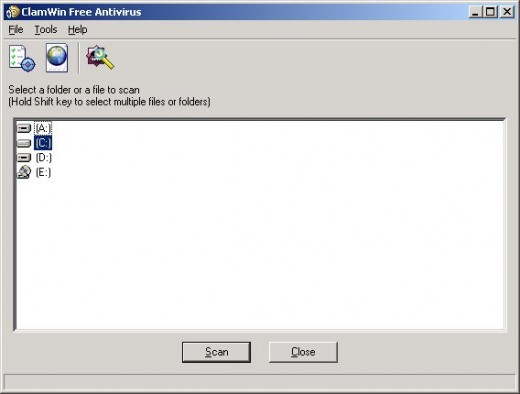
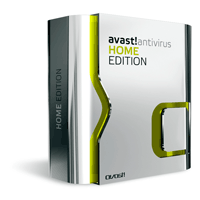
avast! 8 Professional
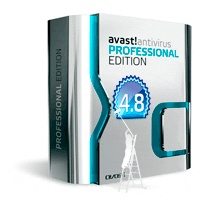
avast! Antivirus Professional Edition 8
- Upgrade avast! Home Edition to Professional and get...
Boot Time Scanner (Windows NT/2000/XP/Vista/7/8), Program Interface available in 24 languages, Instant messaging protection (Skype, ICQ, mIRC, Yahoo Messenger etc), Basic and Enhanced User Interface.
Antivirus: Avast Home Edition
Reviewing ANY antivirus is a tough task. It always raises the question 'Why antivirus A is better than antivirus B?' Each antivirus brand on the market has its avid supporters and furious haters. Each test is criticized badly.
Let's just understand a very simple fact: there are no 2 computers with absolutely identical conditions regarding data security. We all use computers differently. We visit different websites, we receive emails from different servers, we download different files. So what works just fine for you, may not work for me, and vice versa. My effective antivirus protection may be not as effective as someone else's.
So we just have to bear with the risks and do our best to minimize them.
I'm recommending Avast Home Edition Antivirus not because it is superior to competing products; there are no superb antivirus software as such. Virus coders are really smart guys, and they do their bad job excellently. Antivirus just helps us to keep malware outside of the PC. However, if we open the door wide, threats enter en mass.
What is Avast for home users?
- Lightweight install, requires a minimum of system resources.
- Provides real-time protection
- Automatic updates
- On-the-fly removal of detected malware (can be set to quarantine)
- Truly 'set it and forget it'.
- Home Edition of avast! antivirus is fully functional, not trial or demo version.
Additionally, Avast integrates a very handy module responsible for keeping 'snapshots' of the files on your HDD. If any file gets damaged, Avast will repair it, restoring to the original condition. Not bad for a free antivirus, huh?
Avast Antivirus contains a number of 'shields' for setting the desired configuration. 'Internet Mail', 'Network Shield', 'Outlook/Exchange', 'Web Shield' and several others can be disabled or enabled with a click of a mouse. Since I don't use Outlook, I keep this shield turned off, but all others are active.
BTW, Avast is allegedly the first antivirus company who developed a protection for U3 flash drives (I have Sandisk Titanium 2 GB). A very useful piece of software I must say. Whenever there rises the need to scan some computer, I just plug in my Sandisk, launch Avast and press the 'scan' button. No booting from CD, no attempts to run a online scanner.
But you shouldn't rest careless once you've installed Avast. Antivirus should always go hand in hand with antispyware because malware is too diverse by its nature.
Note: though Avast Home Edition is free, it still requires a subscription. You can get it via email from Avast support, and it should be renewed yearly.
Another cool option in avast! Home is its ability to convert to Professional Edition. Once you're satisfied with the basic functionality and want to get more enhanced features, just enter the license key and click OK. avast! will automatically download necessary files and upgrade itself to Professional Edition. You don't have to download any separate package or install anything.
Now which antispyware can make a perfect companion for Avast antivirus*?
SpyBot Search & Destroy is well worth a try. Free, popular, recommended by expert users. But avoid activating TeaTimer or you risk corrupting the registry!
Go to: Avast Antivirus: www.avast.com
Go to SpyBot Search & Destroy: www.safer-networking.org
* - with the release of Avast! 5.0 the antivirus engine now includes anti-spyware and anti-rootkit scanning capability as well.
The nature of spyware threats
When it comes to differences between antivirus and antispyware, people often get confused. Some believe that a good antivirus doesn't need any additional antispyware module, others just don't think they can be threatened by some spyware.
To put it simple, a virus is meant to damage files or change them, while spyware silently collects information or establishes loopholes in Internet connection settings to allow secret communication with the remote servers. Spyware is responsible for toolbars, pop-ups, advertisements that suddenly pop-up on the desktop, and that's why it is referred to as 'adware'. Adware is wise enough to analyze your marketing habits and provide ads based on websites you visit frequently. So if you're after porn, you are guaranteed to watch tits all over your desktop - unless there's a secure shield established to block the intruding connections.
Spyware generally is very mean. Often there's no sign indicating the PC is infected with malicious code. If you're not comfortable with Windows Registry and Task Manager's running processes, there's a good chance you won't notice the cases of infection. That's why I can't really tell what is worse - a virus or spyware. It depends on too many conditions and factors!
To add a bit of confusion, there is a number of terms describing online threats like badware, malware, threatware, etc. Spyware is a broader term to describe all these and other nasties.
While free antivirus software is not that rare to come across, when it comes to antispyware, the picture is quite different. Apart from Lavasoft, I can't really mention any worth installing. But the free edition of Lavasoft Ad-Aware does not provide resident memory monitoring, and, to tell the truth, version 2007 became somewhat cumbersome. Previous versions are no longer supported, which makes them pretty useless - without signature updates issued in a timely manner, antispyware gets weak and provides less protection as times goes by and new malware takes the Web by storm.
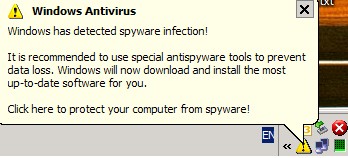
As you see, it is a 'warning' suggesting to go to some website and download some 'antispyware cure'. Clearly it is a SPYWARE itself pretending to act on behalf of Windows Security Center. Smart, isn't it? Imagine how many people fall for that trick! It imitates icons typical for Windows, message boxes and sits in the Tray - as any legit Windows module. But it is a very nasty piece of spyware called DNS changer. I wouldn't dwell into detail here, but assure you're better off without such messages on your Windows box. BTW, curing it is a pain in the ass. For example, those having Protector Plus 2008 anti-virus installed - believe it or not - never get this malware detected. May users of Norton Security and McAfee report the same problem - antivirus claims the system's clean, but pop-up never go away. It's not a virus. It's spyware.
To add a bit of confusion, there is a number of terms describing online threats like badware, malware, threatware, etc. Spyware is a broader term to refer to all of these and other nasties.
Sadly to say that, but there are chances your PC is infected with spyware. Standard Windows protection features are never enough to strengthen the security to exclude the sneaky penetration of spyware.
While free antivirus software is not that rare to come across, when it comes to antispyware, the picture is quite different. Apart from Lavasoft, I can't really mention any worth installing. But the free version of Lavasoft Ad-Aware does not provide resident monitoring, and, to tell the truth, version 2007 became somewhat slow. Previous versions are no longer supported, which makes them nearly useless - without signature updates, antispyware gets weak and provides less protection as times goes by and new malware takes he Web by storm.
Many advanced users recommend SpyBot Search & Destroy as opposed to all kinds of paid antispyware. Don't get me wrong here - normally antispyware software is not free, because developing updates requires much work on part of programmers, staff of security labs, etc. SpyBot is unique because it's been devised and maintained by an enthusiast. Of course donations are welcome, but the functionality of the software is not dependant on your generosity ;)
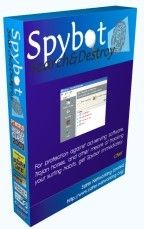
Spybot Search & Destroy Antispyware
To cut a long story short, it is an excellent piece of sofware. SpyBot Antispyware easily outperforms some paid applications known to be 'rogue antispyware' because they are spyware-bundled themselves (yes, such programs are being sold! They collect information while pretending to keep a PC tight and secure).
Before installing, SpyBot allows to create a backup of system registry. Before running the first scan, it advises to run the Web update - always recommended, of course.
Unfortunately Spybot became so popular that there appeared its imitations which are spyware themselves. So it is wise to download this antipsyware tools from Spybot website only.
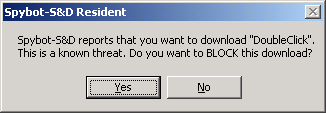
SpyBot Search & Destroy offers resident protection feature. That is constant monitoring of browsing activity to ensure no new infections come from the Web. Whenever there's some potentially malicious nasty trying to pass the SpyBot's resident monitor, a window pops up asking whether you want to block it.

Online Armour Firewall
The name already implies this software is a firewall. And the manufacturer claims it to be the best firewall for Windows!
A lot of users worldwide report Online Armour to be safer and less prone to secuity leaks than Zone Alarm and Comodo (both offer free versions of their software). The big drawback about Zone Alarm is its incompatibility with some software, but Comodo since v3 still can't get rid of certain bugs.
Online Armour is very low on CPU and RAM resources (I'm afraid we'll be forced to forget about "low system overhead" in the epoch of full-blown giant security bundles).
All incoming and outgoing connections can be stopped with a click of a button.
Unlike many firewalls, Online Armour is attracting less attention (frequent pop-ups, to tell you the truth, usually disturb the user).
OA features a complete HIPS (host intrusion prevention system) to keep your peace of mind.
Though Online Armor is a relatively young product and its makers are still adding significant new functionality to the firewall, I'm already seeing a new serious competitor growing on the market of PC security.
Ooops... Online Armour has a free version of the firewall, too.
Go to Online Armour specs: www.emsisoft.com
PC Security Check
PC security check is something you should do on a regular basis. Warned is armed, remember? Any change in software configuration can be a cause for open loopholes in your PC security, so runnign a quick test allows identify them and take the necessary precautionary steps.
Before trying any security-related software it is a good idea to run a test to know if your computer is vulnerable, and if yes, what kinds of threats are most likely to damage your desktop.
There are numerous online tools available exactly for this task. Part of them have been coded by hackers specially to compromise the security of any computer, so you need to be sure that PC security check is not a hidden hacker's attack.
To stay on the safe side, I recommend using free tools offered by world known security companies. A short list of them is available below. Pick a couple and run the provided scanners. Sometimes results can be a relief, and sometimes - a shock (see screenshot below).
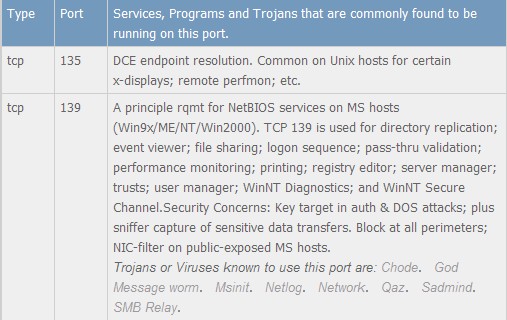
PC Security Testing Software
Here's a screenshot of a test run by Audit My PC. It shows two open ports that can be used with malicious intention by an intruder. So closing these ports is a good idea. In this case it goes down to stopping the relevant services (a desktop PC running under Windows XP normally doesn't need NetBIOS service).
Symantec offers two kinds of PC security check: a virus detection test and security scan. A virus detection means an online scanner will perform a thorough inspection of drives located in your PC. This involves installing parts of software (engine, signature base, etc), and Internet Explorer is often required for that kind of security testing.
PC Security test offers to download a free testing utility. It runs a security check for viruses, spyware, and hacker threats.
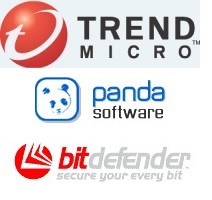
Be Careful When Choosing Free Antispyware
Using a free anti-spyware application requires that you follow a couple of guidelines to ensure the safety of your private data and PC health.
Do a quick research to learn more about the chosen anti-spyware tool. Has it been a long time on the market? (At least a couple of years). Does it have positive reviews on PC security related forums? Are there any signs of it being a rogue software? For that, I recommend you visit www.spywarewarrior.com and read the descriptions of antispyware tools that hide danger in their program code. You'll be surprised at how many applications claim to remove spyware modules from your PC while being nasty malware themselves! In fact, there are quite few true anti-spyware tools available that do exactly what they're saying.
Because of the complexity of the task, developing and maintaining antispyware software requires a lot of work from skilled programmers, engineers, testers etc, which consequently ends in time-consuming process of updating scanning engines, signature databases, providing customer support. That is why I suggest that you consider using free antispyware for home PC's only. Well, laptops can qualify as well, but often they come with pre-installed security centers from McAfee of Symantec, which do the job.
When it comes to corporate networks, small business, or just PC's with crucial data, it is not wise to save on a good, reputable, robust antispyware engine.
PC security shield
Below I will try to clarify the meaning behind 'PC Security Shield' so that to give you an understanding of the term with little technical details.
Your PC receives data mostly in two ways: network connection (Internet, corporate LAN) and storage devices like DVD-drives and external Hard Disk Drives, flash drives, etc. If you execute an infected file located on a DVD, your PC security can me immediately compromised. Will it be infected with a virus or not totally depends on what kind of virus it is, what OS is running, what kind of anti-virus software is installed, etc. But the World Wide Web is of course the primary way of getting infected.
So setting a PC security shield implies the need for checking all the ways in which data can be received.
The first thing is to scan the Internet traffic, both outgoing and incoming. Be it downloaders, email clients, or any other kind of traffic. It should be done 'on-the-fly' and in the background. Your antispyware (and preferably firewall as well) should be configured so that in case some danger is detected, the faulty stream of traffic is immediately blocked, before the user decides on what to do. If PC security software reports a so-called false positive, you may unblock the traffic and continue what you've been doing.
Since all processes and all used files go through RAM (Random Access Memory), it is vital that anti-virus software deploys some kind of resident scanner. This prevents from malicious code the be executed. However, I should note that resident scanners cannot ensure a 100% detection rate. It just depends on quite complicated factors.
Therefore it is highly recommended that you schedule antivirus software for a weekly scan of ALL data stored on devices in your PC. Hard drives, external drives, etc.
Still, because there are always chances of getting some virus which by-passes the installed PC security software, it is not a bad idea from time to time (say, once a month) perform an overall scan by some online antivirus scanner. There are quite some of them available, although I give thumbs up for the following:
- TrendMicro Housecall. Requires Mozilla Firefox or Internet Explorer.
- Panda Active Scan. Internet Explorer 6+ is required.
- Bit Defender Scan. Personally I like it most of all ;) Needs Internet Explorer to perform.
I'm not advocating these services - there are more tools available which you may find better after trying. BitDefender has a very friendly interface, TrendMicro deals with spyware as well as viruses, so each of the options has its advantages. I suggest that you switch between these free online antivirus scanners occasionally to leave the infections no chance to survive under the hood of your PC.
Keep your PC security shield strong and always on the alert!
SUPERAntiSpyware
SuperAntiSpyware program is one of the better detectors of malware. The program quickly attracts new customers, many of them stop using competing products and switch to SAS. Simple, clean, intuitive interface. Daily updates. For those requesting advanced features there's possibility to get a LIFETIME subsciption to receive updates year after year (seems like no other security software manufacturer offers such generous deals - and I suspect it won't last long).
SAS will detect and remove thousands of Spyware, Adware, Malware, Trojans, KeyLoggers, Dialers, Hi-Jackers and other types of threats.
Over 6 million PC users chose SuperAntiSpyware to strengthen their computer security.
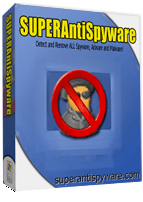
- SuperAntiSpyware
Highly advanced Real-Time Protection. Auto-scans with Direct Disk Access technology reveal and remove infections that other antimalware products cannot detect. Multi-Dimensional Scanning and Process Interrogation Technology. Email support 24/7.
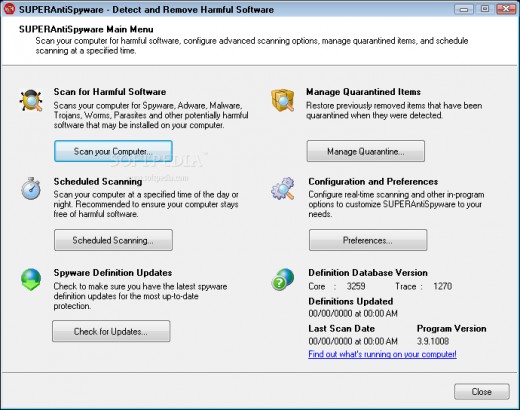
The Untold Lacunes of Security Suites
I've seen F-Secure Internet Security at work. I can't say it is bad in terms of detection, but it sure eats up CPU and RAM like a hungry beast. The same is true about some other all in one PC security software packages that claim to defend a PC against everything ever coded, transmitted, mutated and programmed by evil Asian IT students.
You're being constantly told on nearly a daily basis that you should never go for compromise with PC security. That it is something worth much more than a 1 year subscription at Christmas 50% off discounts. That the more you pay, the more you get. The last stetement is profoundly deep because in terms of downloaded megabytes you may be getting really more that you could expect. Today it's no surprise to come across a security suite well over 100 megs in size. My Lord, I remember hard drives were of such volume! And now it's a single piece of software.
The truth is bitter. Marketing makes you think that a sizeable downloaded file contains MORE functions, MORE features, MORE controls, MORE presets, MORE skins, MORE scanning modes, etc. The list goes on and on. In reality, it depends on how well the program code is optimized. Security is in the first place about security, and not about the number of running processes in Windows Task Manager. Would you want a totally safe computer which is damn slowed down by PC security software? Sure not.
There's even more beyond the size of security suites. Integration of antivirus, antispyware and firewall can leave you no choice. If you disable, say, a firewall, a warning 'Security compromised! Protection stopped functioning!" may appear on the desktop. When all applications are coded by same developer, there's a good chance that the whole suite performs well only when every module is active. If antivirus misses some malware, it can be caught up by antispyware. Or vice versa - a good antivirus can be accompanied by a less performing anti-spyware. Then why would you need to pay for it? Doesn't it make sense to pay only for a good antivirus, and not for the bundle?
So my idea is about antivirus and anti-spyware from different security software companies.One of my friends was a long time fan of Eset's NOD32, but one day decided to go FREE and installed Avast Home Edition. Will you be amazed to know that Avast instantly found some viruses that NOD32 was not detecting for years? I don't mean that NOD32 is worse than Avast - no, that's not the point.
Security applications from different programmers offer somehow different point of views on the level of protection of your computer. Obviously, one single security suite can't do that.
And I'm not yet talking about resource hungry packages that can take up to several hundreds megs of memory in idle state!

